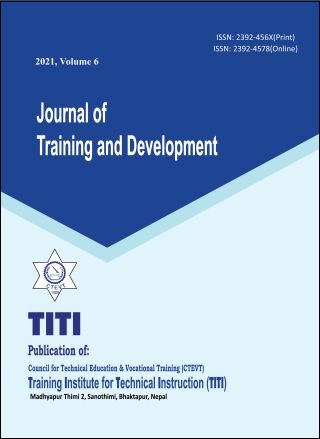Life Experiences of Construction Sector Workers in the COVID Context in Lalitpur, Nepal
DOI:
https://doi.org/10.3126/jtd.v6i01.41782Keywords:
Construction Workers, COVID Pandemic, Resilience, Social capitalAbstract
The COVID-pandemic has hit hard on Nepali's economy and the lives of construction- sector workers. The purpose of this research is to explore the life experiences of construction-sector workers during and post COVID-pandemic. This research adopts a qualitative approach under the socio-constructionism paradigm. Data gathered from in-depth interviews with three participants in the sectors of masonry, house-painting, and plumbing have been used for making out the meaning of the research. The findings of this research reveal that the COVID-pandemic has brought new resilient strategies in the lives of the construction workers such as keeping high concern on personal safety, family’s well-being and exploring employment opportunities through informal networks. Living with the COVID has become possible due to the resiliency and social capital of the workers. This research is helpful to TVET practitioners and academicians to understand the survival strategies of the construction sector workers and plan TVET programs accordingly.
Downloads
Downloads
Published
How to Cite
Issue
Section
License
Copyright (c) 2021 Devendra Adhikari

This work is licensed under a Creative Commons Attribution 4.0 International License.
Authors who publish with this journal agree to the following terms:
- Authors retain copyright and grant the journal right of first publication with the work simultaneously licensed under a Creative Commons Attribution License that allows others to share the work with an acknowledgement of the work's authorship and initial publication in this journal.
- Authors are able to enter into separate, additional contractual arrangements for the non-exclusive distribution of the journal's published version of the work (e.g., post it to an institutional repository or publish it in a book), with an acknowledgement of its initial publication in this journal.
- Authors are permitted and encouraged to post their work online (e.g., in institutional repositories or on their website) prior to and during the submission process, as it can lead to productive exchanges, as well as earlier and greater citation of published work (See The Effect of Open Access).




